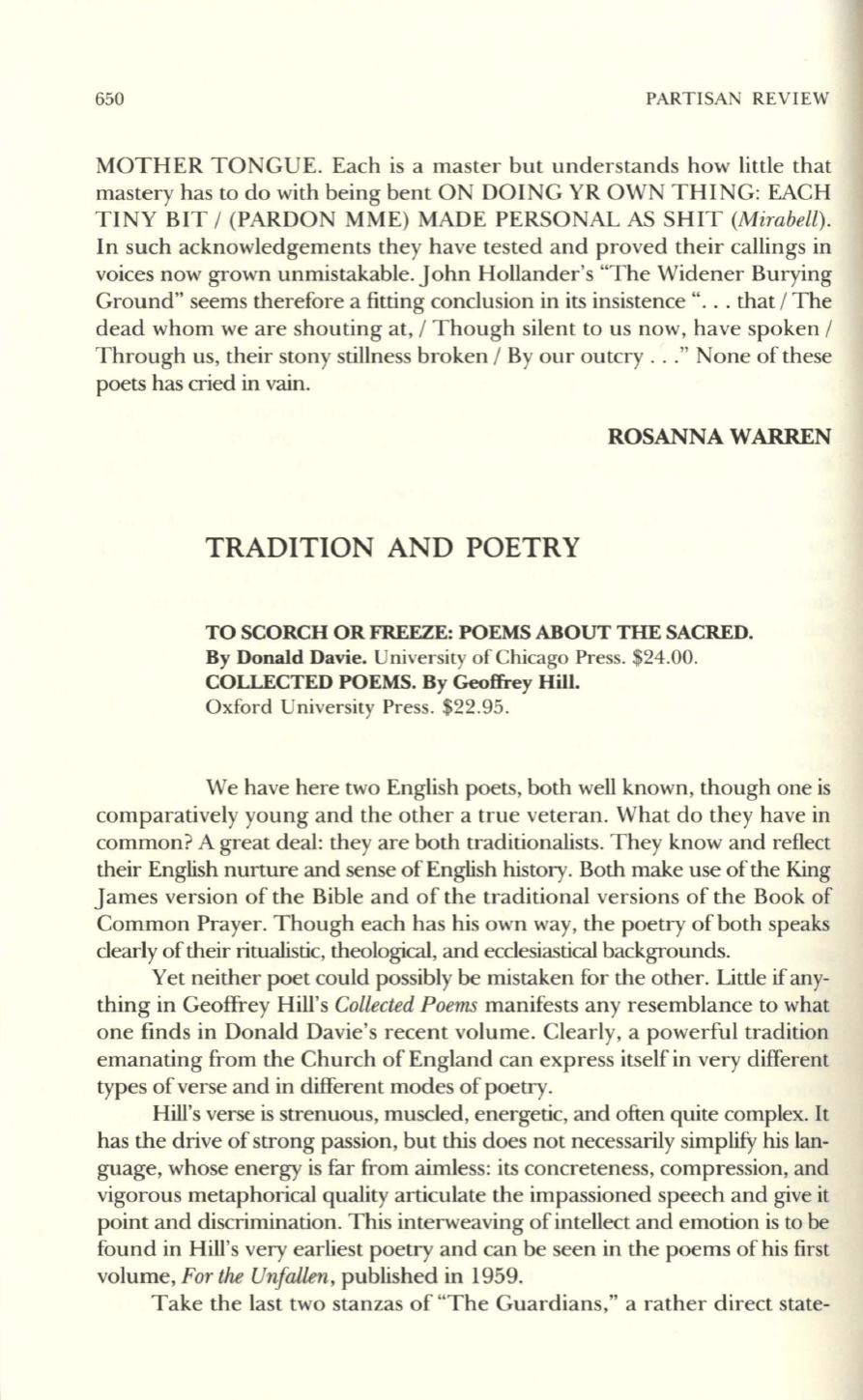
650
PARTISAN REVIEW
MOTHER TONGUE. Each is a master but understands how little that
mastery has to do with being bent ON DOING YR OWN THING: EACH
TINY BIT / (PARDON MME) MADE PERSONAL AS SHIT
(Mirabell).
In such acknowledgements they have tested and proved their callings in
voices now grown unmistakable. John Hollander's "The Widener Burying
Ground" seems therefore a fitting conclusion in its insistence"... that / The
dead whom we are shouting at, / Though silent to us now, have spoken /
Through us, their stony stillness broken / By our outcry ..." None ofthese
poets has cried in vain.
ROSANNA WARREN
TRADITION AND POETRY
TO SCORCH OR FREEZE: POEMS ABOUT THE SACRED.
By Donald Davie. University of Chicago Press. $24.00.
COLLECTED POEMS. By Geoffrey Hill.
Oxford University Press. $22.95.
We have here two English poets, both well known, though one is
comparatively young and the other a true veteran. What do they have in
common? A great deal: they are both traditionalists. They know and reflect
their English nurture and sense of English history. Both make use of the King
James version of the Bible and of the traditional versions of the Book of
Common Prayer. Though each has his own way, the poetry of both speaks
clearly of their ritualistic, theological, and ecclesiastical backgrounds.
Yet neither poet could possibly be mistaken for the other. Little
if
any–
thing in Geoffrey Hill's
Collected Poems
manifests any resemblance to what
one finds in Donald Davie's recent volume. Clearly, a powerful tradition
emanating from the Church of England can express itself in very different
types of verse and in different modes of poetry.
Hill's verse is strenuous, muscled, energetic, and often quite complex.
It
has the drive of strong passion, but this does not necessarily simplify his lan–
guage, whose energy is far from aimless: its concreteness, compression, and
vigorous metaphorical quality articulate the impassioned speech and give it
point and discrimination. This interweaving of intellect and emotion is to
be
found in Hill's very earliest poetry and can be seen in the poems of his first
volume,
For
the
Unfallen,
published in 1959.
Take the last two stanzas of "The Guardians," a rather direct state-


